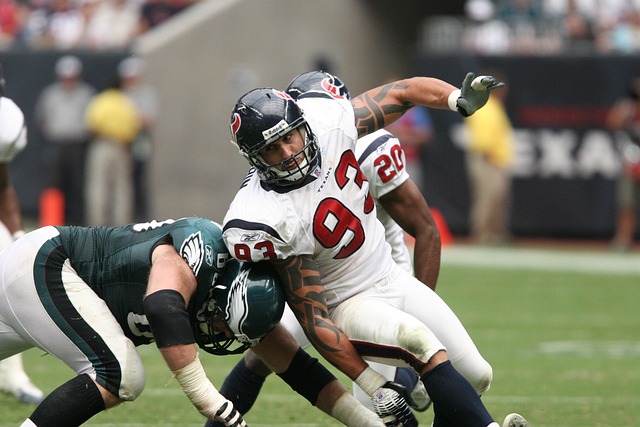Sports Analytics and Betting Strategies: The Data-Driven Approach to Winning
Sports betting has undergone a huge facelift recently, especially with the influx of new technologies such as information analysis and big data. The average punter is no longer what he used to be for whom a bet would be placed based on feeling, hunch, or opinion only. In fact, with more information, algorithms, and statistical models available today that give any surety of a win to the bet. This has leveled the playing field so that even the most inexperienced punters have access to methods that in the past were only available to the experts, or people with inside information.
In 2024, it will still be relevant in sports analytics and bet logistics and relevance, turning into an indispensable tool for betting. The article shall look into the ways through which big data and analytics influence betting, the tools and techniques that serious bettors use, and how they can enable one to have an edge.
The Era of Big Data in Sports
Sports have always been rich in statistics, but the scale, precision and accessibility have dramatically improved in the last ten years alone. With sensors, cameras, and tracking technologies, every movement on the field or court can be recorded, analyzed, and parsed into KPIs. That has transformed into an enriching amount of data available to punter scrutiny when placing their bets.
Major leagues around the world NFL NBA, and EPL collect a deep set of player and team performance data, from simple measures like shooting percentage and rushing yards to advanced metrics like Expected Goals (xG) and Player Efficiency Rating (PER). This all provides useful information that will underpin a better understanding of how teams and players perform under specific conditions.
It is here, when that data becomes subjected to analysis by algorithms and machine learning models, that the magic comes in. These tools find patterns, trends, and correlations that no human eye would ever be able to detect, thus giving the better edge.
Analytical Tools and Metrics Used in Betting
In 2024, advanced statistical models and machine learning algorithms will be the major driving forces in the application of sports analytics in sports betting. Predictive modeling, simulations, and real-time data feeds are the most traditional tools employed by betters. The explanations for most of the frequently used tools are hereby represented as:
Predictive Modeling: This involves using historical data to make predictions about event outcomes. The punters rely on models that take into consideration everything from player performances, weather conditions, injuries, and head-to-heads. The whole idea is to predict the probability of an outcome be it a result of a game, the number of goals scored, or whether a particular player reaches his seasonal average in a stat.
Simulations: One of the most prevalent methods that serious gamblers employ is running game simulations based on historical data, such as Monte Carlo simulations. Running through thousands of possible outcomes can provide probabilities for various different betting markets. In a more general sense, this gives what may happen in one particular match as a way to help the bettor better assess the risk and reward involved with the bet.
Efficiency of the Betting Market: There are a few analytic tools that assist the bettor in assessing the efficiency of the betting market. A market is said to be efficient if the odds reflect the probability of the outcome. Inefficiencies still exist and that is where the sophisticated bettor can earn a profit. Using those advanced analytics to find where bookmakers might have miscalculated odds, some take advantage of inefficiencies.
How Bettors Use Analytics to Gain a Competitive Edge
Here is how bettors are using data to gain an edge:
Player and Team Performance Metrics: Today’s bettors have access to more advanced metrics than the surface stats of yesterday. Metrics like PIE or WAR give a much deeper look at the contribution a player makes to their team. With the analysis of these advanced metrics, one will have the ability to predict more precisely what kind of impact a player will have on the outcome of a game.
Situational Betting: Analytics can also give a bettor the capability to factor in game-day conditions that might determine outcomes. An example could be home/away performance splits, or even weather conditions, perhaps down to the times of the day when teams perform better. These are areas where historical trends may be used to compare the teams’ performances and adjust one’s strategies accordingly.
The Future of Sports Betting Analytics
With integration in sports analytics continuing well into 2024 and beyond, their place in betting is bound to be furthered. The algorithms behind different machine learning models used for betting will get better; the data that will be collected will be even more detailed, as the bettors themselves will get even more refined. Some other areas that are likely to grow very fast include the incorporation of much more value-added Players Tracking Information to analyze the behavior and characteristics of players more effectively.
Analytics are great for providing insight, but nothing is set in concrete when it comes to sports wagering. Advanced models have their problems, as some things will occur in sports that cannot be accounted for. Successful sports wagerers use analytics to aid them, but also balance that aspect with intuition, discipline, and proper money management.

Bryan has a Bachelor’s Degree in Political Science and a life-long passion for politics at all levels. He has interned in the Maryland General Assembly and has volunteered for several congressional campaigns. Given this particular background, he has a unique insight into the dynamics of political analysis. When he is not writing, Bryan spends his time reading about history and frequenting Chinese restaurants.

